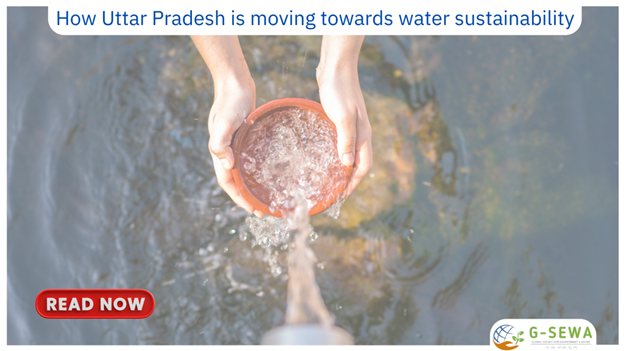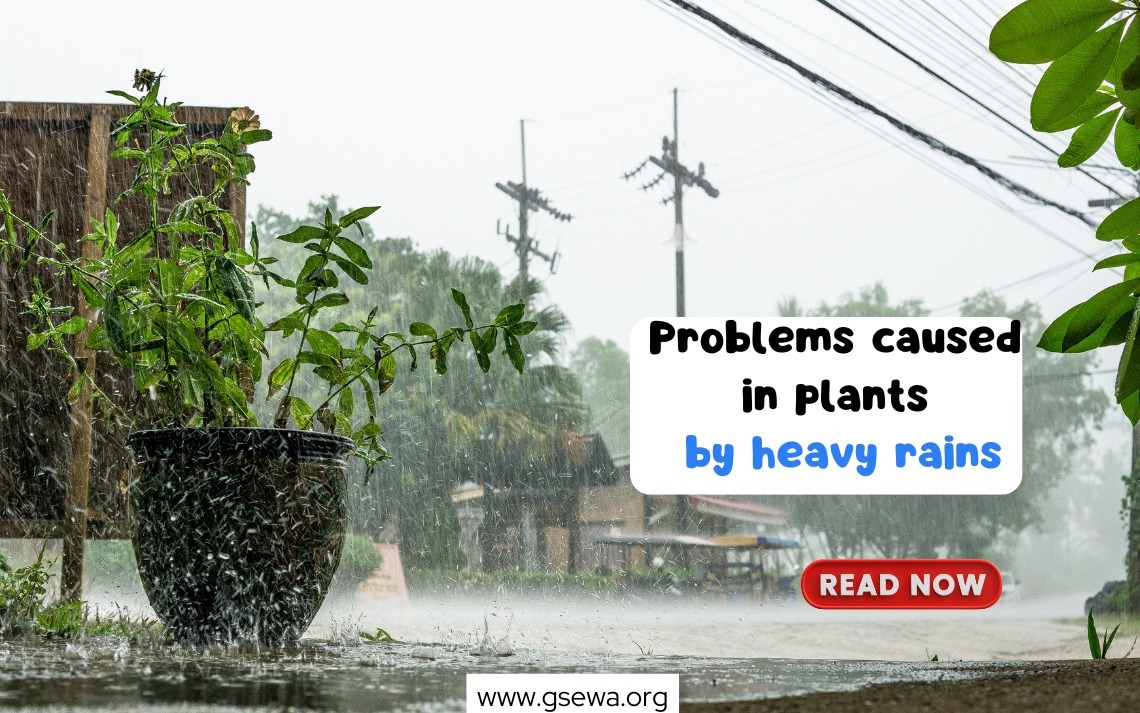
How Uttar Pradesh is moving towards water sustainability
Uttar Pradesh is grappling with a severe and unabated use of groundwater resources, a crisis exacerbated by the growing demand, particularly in the agriculture sector. Over the past 30-40 years, the use of groundwater has skyrocketed, mirroring the increase in net irrigated area.
Presently, the state boasts an impressive 87 percent of irrigated area, far surpassing the national average of 49 per cent. This achievement, however, comes with a stark reminder of the overreliance on groundwater, making the state one of the most highly irrigated states in the country.
Irrigation in the state is alarmingly reliant on groundwater, with over 3.7 million shallow tube wells extracting a staggering 41 billion cubic meters (bcm) of groundwater annually. This accounts for a staggering 90 percent of the total groundwater abstraction in the state.
Also, 35-40 percent of the total irrigation wells in the country are located in this state, according to the State of Groundwater in Uttar Pradesh, Water Aid, 2021.
Uttar Pradesh Chief Minister Yogi Adityanath stressed on the revival of old lakes, ponds and wells and urged people to use water judiciously during the Groundwater Week Programme in June 2022. In addition to these measures, the government has also implemented strict regulations on groundwater extraction, promoted the use of drip irrigation, and encouraged farmers to adopt water-saving practices.
The state has embarked on a crucial journey towards water sustainability, implementing a range of significant measures. These steps are not just initiatives, but a testament to our commitment to a sustainable future. Some of the key actions taken to meet our objectives include:
1. A significant stride was made in 2019 when the illegal extraction of groundwater was declared a punishable offense under the UP Groundwater Management and Regulation Act. This move, aimed at preserving our precious water resources, marks a crucial step in our water sustainability efforts.
2. The state’s policy framework is being fortified through the formation of an expert body. This body is reviewing the State Water Policy of 1999 and crafting an improved version. These changes are designed to tackle present-day challenges and pave the way for a more sustainable future, instilling hope and optimism.
3. As part of our proactive approach, we have implemented a real-time monitoring system for our water bodies. This system not only helps us predict problems like floods or droughts but also ensures the transparent implementation of our water management projects.
4. In 66 districts, the rural water supply stations will leverage the use of solar power. From the past experience it is realized that many schemes of water supply failed due to operation and maintenance issues.
5. Huge electricity bills were accumulated in running the rural water supply scheme and non-payment led to their shutdown
6.Focus on river health system by implementing sewage treatment plant to check the river pollution and achieve desired quality of water
7. Plan to save wetlands by notifying UP Wetland Authority under forest department to champion the cause of saving wetland. Since the authority came into existence six wetlands have been notified under the UN RAMSAR convention.

The state is also focusing on revival of the water bodies, particularly ponds as they are an essential source of freshwater and provide numerous ecological, economic and social benefits.
A total of 245,088 water bodies are enumerated in Uttar Pradesh, with a staggering 98 per cent (240,140) located in rural areas. These water bodies, including ponds and lakes, are not just mere geographical features, but vital sources of life, providing essential ecological, economic, and social benefits to the communities they serve.
Regrettably, out of the total available water bodies, a significant 27 per cent (65,502) are not in use. This is due to a variety of reasons, including drying up, siltation, salinity, and being destroyed beyond repair. These challenges underscore the need for concerted efforts in water management and conservation.
Despite the challenges, Uttar Pradesh is leaving no stone unturned in its mission to revive all the abandoned or non-functional water bodies. These efforts, spanning over years, stand as a testament to the state’s unwavering commitment to environmental conservation and water management.
The Amrit Sarovar Scheme, a government initiative, was launched on April 24, 2022 to provide clean drinking water to rural areas in the state. This transformative scheme is set to ensure that every household in the state has access to safe drinking water, bringing a wave of hope and optimism to these communities as a part of source sustainability under Jal Jeevan Mission.
Jal Jeevan Mission, a visionary initiative launched in 2019 by the Centre, aimed at providing functional household tap connections to all rural households by 2024. In a testament to its commitment, Uttar Pradesh has made significant strides in the implementation of the Jal Jeevan Mission. As of March 2021, the state had provided tap connections to around 3.5 million households, a remarkable achievement that is about 21.2 per cent of the total rural households in the state, filling us with pride and encouragement.
Uttar Pradesh, a beacon of leadership, tops the country with 10,858 lakes developed under Mission Amrit Sarovar. This is almost twice the total number of such lakes developed collectively in Madhya Pradesh, Jammu & Kashmir, Rajasthan and Tamil Nadu, a feat that leaves us all impressed and inspired.

The Atal Bhujal Yojana (ATAL JAL), a significant initiative, is currently underway in a substantial number of 8,562 Gram Panchayats across 80 districts in Gujarat, Haryana, Karnataka, Madhya Pradesh, Maharashtra, Rajasthan and Uttar Pradesh. This ambitious project aims to enhance community-led sustainable groundwater management.
Under this scheme, Rs 7.69 crore was released for Uttar Pradesh for financial year 2020-21 and Rs 32.33 crore for FY 2021-22. The fund from the central government was for 550 Gram Panchayats in 26 blocks of 10 districts. Taking this initiative forward the state government has approved to implement this scheme in the remaining 65 districts which is not covered under the central plan under Uttar Pradesh Atal Bhujal Yojana (as reported in on 20 November 2020.)
The state government, demonstrating its unwavering commitment to water conservation, has successfully implemented the Khet Talab Yojana. This scheme, initiated in 2013 and reinstated in 2016, is a testament to the government’s dedication to sustainable water management.
Through the Uttar Pradesh Khet Talab Yojana, a grant was provided to farmers for converting a part of their farm into a pond. Under this scheme, a grant of 50 per cent will be provided by the state government for ponds of the following sizes: Small (22x20x3 metres) and big (35x30x3 metres).
The primary objective of the Khet Talab Yojana is to ensure sufficient water for irrigation in Uttar Pradesh by constructing ponds in farmers’ fields. This initiative is expected to alleviate the water scarcity issue faced by farmers, thereby boosting their income and contributing to the state’s agricultural development.
First phase: This scheme was first started in the Bundelkhand district of Uttar Pradesh, where about 2,000 ponds were constructed. Rs 12.20 crore was spent in the construction of these ponds.
Second phase: In the second phase of UP Khet Talab Yojana, 3,384 ponds were constructed at a cost of Rs 27.88 crore in highly water extracted 167 critical developmental blocks of 44 districts of the state, including Bundelkhand.
While Uttar Pradesh has made commendable progress in the implementation of water conservation and management schemes, it is crucial to acknowledge the challenges that persist. The lack of awareness and participation from local communities, along with poor maintenance of existing water conservation structures, pose significant hurdles. This underscores the need for collective action and participation to overcome these challenges.
But all these efforts are significant steps to have a positive impact on the water bodies in the state by improving the water quality, reducing water scarcity, promoting the recharge of groundwater, and conserving water. This will ensure access to adequate water availability to meet domestic, drinking and agricultural demand, which is essential for the health, socio-economic development and overall progress of the state.
We, G Sewa stands as a beacon of hope in Lucknow, Uttar Pradesh, as the leading NGO dedicated to making a tangible difference in the lives of its residents. With a steadfast focus on water conservation, our dedicated team tirelessly collaborates with local communities, stakeholders, and volunteers to implement sustainable solutions that extend far beyond immediate boundaries. Our commitment to creating lasting impact resonates in every endeavor, as we strive to forge a brighter, more equitable future for all. Join our Best NGO in Uttar Pradesh in our relentless pursuit of positive change, one life at a time, as we embark on a journey towards a more sustainable and prosperous tomorrow for Lucknow and beyond.



